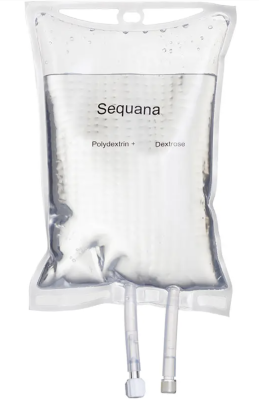
May 2, 2023 — Sequana Medical NV, a pioneer in the treatment of fluid overload in liver disease, heart failure and cancer, announced that the US Food and Drug Administration (FDA) has cleared its Investigational New Drug (IND) application for its second-generation DSR product (DSR 2.0) for the treatment of congestive heart failure. This enables the Company to initiate its randomized controlled Phase 1/2a MOJAVE study in the US, in Q2 2023 as planned.
Oliver Gödje, Chief Medical Officer of Sequana Medical, commented: “We are delighted to obtain clearance of the IND for our DSR 2.0 product and are ready to commence the MOJAVE study in US patients with congestive heart failure in a timely manner. We are now focused on enrolling our first patient, which we expect will occur in the second quarter of 2023, and look forward to reporting data from the three patients of the non-randomized cohort by year-end.”
Ian Crosbie, Chief Executive Officer of Sequana Medical, added: “For the estimated 200,000 diuretic-resistant congestive heart failure patients in the US, there is an urgent need for new therapies that can safely and effectively eliminate congestion, reduce repeated hospitalization and improve clinical outcomes. Following the strong safety and efficacy data reported from our RED DESERT and SAHARA proof-of-concept studies, we believe that our DSR therapy has the potential to be a disease-modifying heart failure therapy.”
On Track to Start MOJAVE in Q2 2023
MOJAVE is a randomized controlled Phase 1/2a study in the US, designed to evaluate the safety and efficacy of DSR 2.0 in diuretic-resistant chronic heart failure patients with persistent congestion.
Following Ethics Committee approval, the study will commence with a non-randomized cohort of three eligible patients treated with DSR 2.0, administered via a peritoneal dialysis (PD) catheter, on top of usual care for congestive heart failure for up to four weeks followed by a three-month safety follow-up period. Progress to the randomized cohort of up to 30 additional patients depends on approval from the Data and Safety Monitoring Board (DSMB) following review of the non-randomized cohort data.
The randomized cohort consists of up to 20 randomized patients treated with DSR 2.0, administered via a PD catheter, on top of usual care for congestive heart failure for up to four weeks and up to ten randomized patients treated with intravenous loop diuretics alone as part of maximized usual care for congestive heart failure. Following four weeks of treatment, there is a three-month safety follow-up period.
Primary and secondary safety and efficacy endpoints include the rate of adverse and serious adverse events and the improvement in diuretic response (measured as a six-hour urine sodium output) from baseline through the end of the treatment period. Exploratory endpoints measured from baseline through the end of the treatment period include change in weight (volume status), creatinine (a marker of renal function), natriuretic peptides (a marker of heart failure) and New York Heart Association (NYHA) functional class; and the number of heart failure related rehospitalizations.
For more information: www.sequanamedical.com


 January 05, 2026
January 05, 2026 









